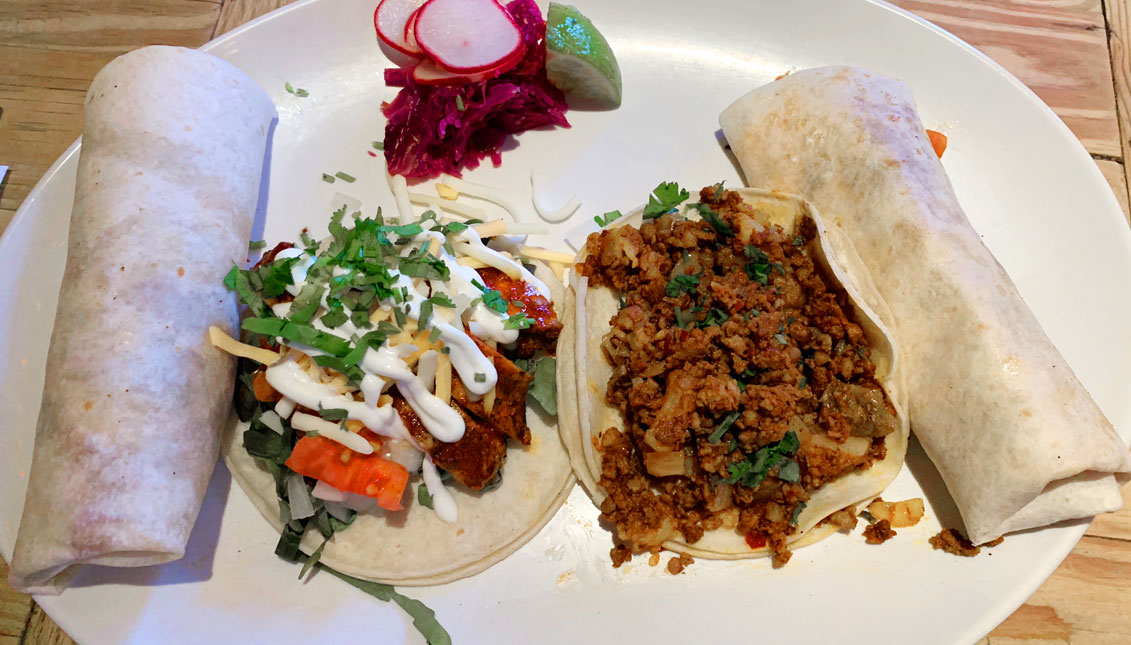
Why 'authenticity' doesn't exist, according to the man who knows most about tacos in the U.S.
A plate of tacos, like identity and race, cannot be reduced to a simple tortilla. We prepare you for Cinco de Mayo with a bite of cultural history.
Throughout the United States there are eight categories of tacos. There are those with a southern influence, known as Sur-Mex, Texas breakfast tacos, barbecue tacos, Korean-inspired tacos, kosher tacos, those made in Baja California and even nouvelle cuisine.
It's not unreasonable to say that studying and savoring what a flour tortilla hides is almost taking one or more bites into the cultural history of the United States and Mexico, because each taco, says journalist José R. Ralat, "is a representation of its time and place."
Ralat, the taco editor at Texas Monthly, has been writing about the essence of the taco for years and has traveled from state to state, from taqueria to taqueria, to write American Tacos: A History and Guide (University of Texas Press). In it, he strips the history of this simple dish that is also a symbol of multiculturalism and addresses some harsh circumstances from our common past.
"Borders cannot stop food. That includes the Rio Grande."
But the most important thing about the book, especially when we prepare margaritas to celebrate Cinco de Mayo- the victory of the Battle of Puebla, in 1886, when a disorderly army defeated French invaders-is that the notion of "authenticity" conceived as untainted purity is not valid when talking about race, identity, and most poignantly, tacos.
"You have to learn that a taco is not always meat in a corn tortilla with onions and cilantro," the journalist told the Chicago Tribune. "The idea of an authentic Mexican taco is something we can never deliver."
Ralat doesn't understand why so many chefs are obsessed with the " original" taco when Mexican cuisine is as huge and varied as its people.
"There are too many micro-regions that don't obey each other. Borders can't stop food. That includes the Rio Grande."
His book is not a joyful ode to the goodness of the taco, but an exercise in culinary criticism and ethnography across the country. He even goes so far as to question well-known chefs who believe that something as universal and as particular as the taco is copyrighted.
In Kansas City, tacos are served crisp and covered with grated parmesan from the coexistence of Mexicans and Italians during the early days of the railroad.
RELATED CONTENT
In contrast, says Ralat, the fried bread tacos, which arouse as much passion as hate, were born in "one of the darkest periods of this country; the American occupation, the Anglo-Saxon settlement of the Southwest and the forced relocation of the local populations," he wrote.
That's why many indigenous chefs he spoke to were against fried bread, regardless of how healthy or unhealthy it might be.
"It represents innovation and survival in the face of almost certain death, so it's a complicated thing," he said.
"The idea of an authentic Mexican taco is something we can never deliver."
When asked about the future of taquerias in America, especially in the midst of a pandemic, at a time when big brands like Taco Bell have taken the lead over small shops, the man who knows the most about tacos said, "The taco will last."
But he's not saying this as a taco hooligan, but rather in light of their history. Most U.S. taquerias emerged during the Great Recession to help feed people at affordable prices.
"We need to support our local businesses. These people are trying to feed their families, just like their employees. Some of them may be undocumented and not benefiting from the system," he concluded.
When you eat your tacos tomorrow, know that inside that tortilla is our past, present and also future.











LEAVE A COMMENT:
Join the discussion! Leave a comment.